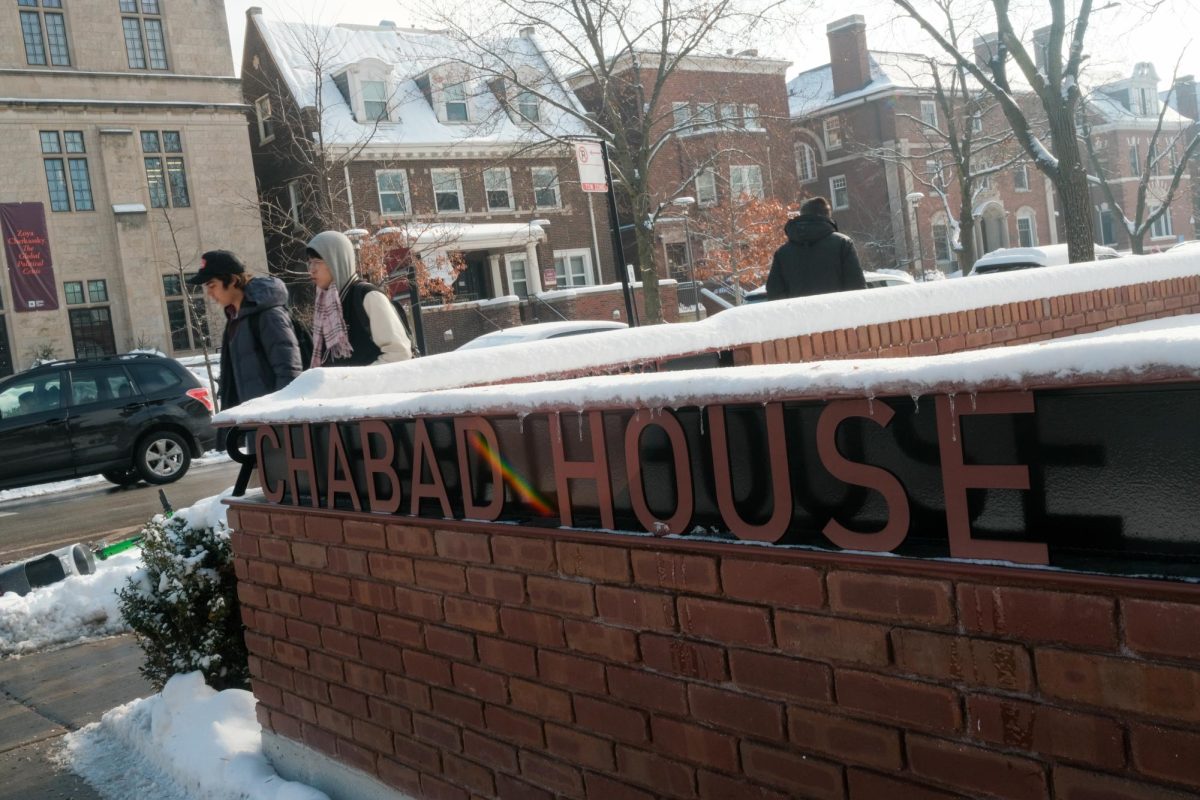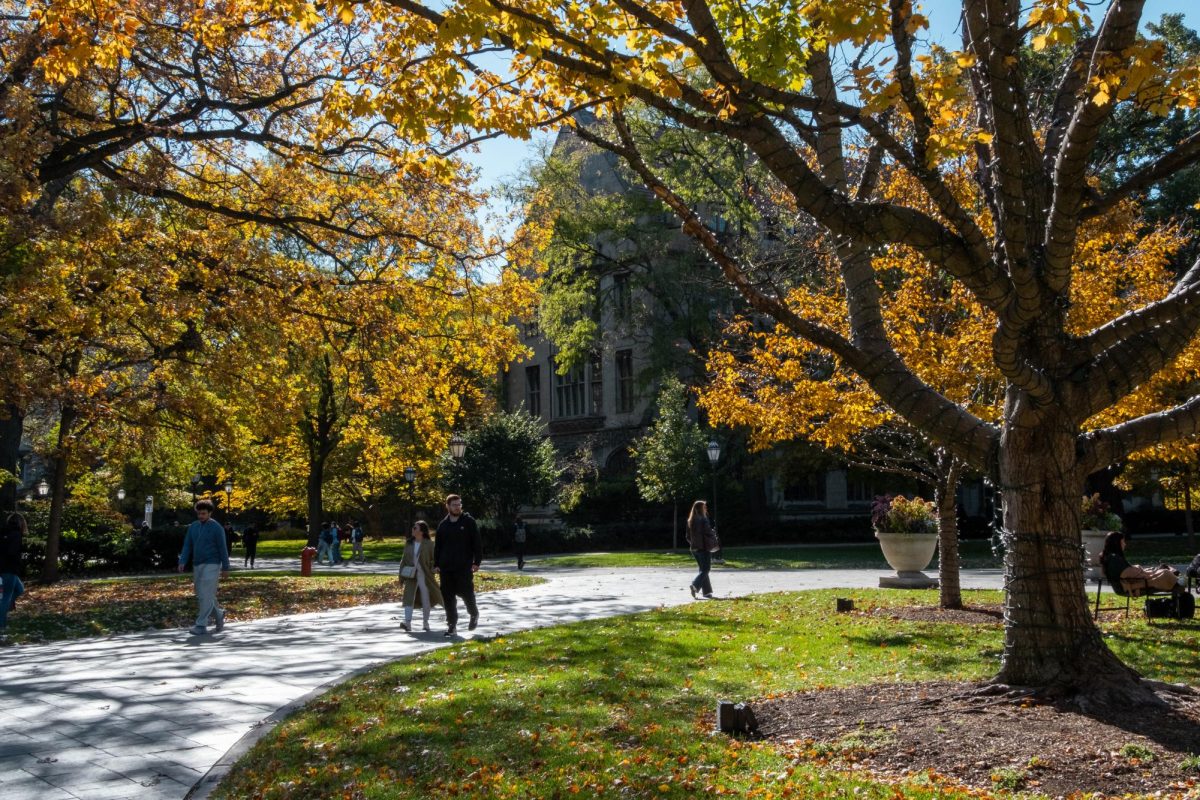Subscribe here to receive this newsletter in your email inbox.
Good Wednesday morning. Welcome to the third week of summer break, or to the second week of summer quarter.
Steve Edwards, the Institute of Politics’s highly respected second-in-command, is leaving the IOP to serve as chief content officer for WBEZ, Chicago’s public radio station, where he worked before coming to the IOP in 2012. David Axelrod’s parting words to Edwards at an IOP reception in D.C. on Monday night, “I love you brother.”
Oriental Institute could lose Iranian collection in SCOTUS case: The Supreme Court announced on Monday that it would hear a case that could result in the seizure of some of the Oriental Institute’s most prized artifacts. Here’s what you need to know:
- Three Hamas-affiliated suicide bombers attacked a mall in Jerusalem in 1997. The attack was believed to have been sponsored by Iran. Eight U.S. citizens severely injured from the attack sued Iran in a federal court, winning a $71.5 million judgment that Iran refused to pay.
- In order to execute the judgment, the victims then asked a Chicago federal court to initiate proceedings to seize collections of Iranian artifacts held by the city’s Field Museum and the University of Chicago’s Oriental Institute. The Institute’s collection, which includes nearly 30,000 clay tablets from the ancient city of Persepolis that was almost destroyed by Alexander the Great, was loaned to the University by Iran in 1937.
- A federal judge denied their request, and the Seventh Circuit later affirmed this ruling. The victims then appealed the judgment to the Supreme Court, resulting in Monday’s announcement.
What the travel ban decision means for the U of C: The Supreme Court’s decision to allow the President’s travel ban to only partially take effect until it hears the case means that the University will be mostly unaffected in the interim. Persons from the six affected countries who demonstrate a “bona fide relationship” to an individual or entity in the United States will be able to travel; “relationships” with the University as an entity should count. The Court explicitly says that students admitted to American universities or persons invited to give lectures in the U.S. will be allowed to travel.
- The University’s Office of International Affairs provided an update after the ruling. It reads, in part, “The University will monitor how this recent decision will impact members of our campus community.”
Big bucks: A couple bought a house on Woodlawn Ave. for $3 million last month, the highest price paid for a Hyde Park home since 2013, Crain’s calculated.
Trump’s NLRB picks & grad unionization: The Obama-era National Labor Relations Board ruled last year that graduate student teaching and research assistants could unionize under federal labor law, but an anti-organized labor NLRB could reverse that decision. The Trump administration announced its first appointee to one of two vacant positions on the National Labor Relations Board this week. The New York Times speculates that Trump’s appointment might not go through the Senate till the fall, a delay which could allow time for a vote by graduate students at the University of Chicago near the start of fall quarter.
University announces joint TAPS Ph.D. program: The University announced Monday that it will become the first school in the country to offer a joint Ph.D. program in Theater and Performance Studies (TAPS). The joint program will allow students to combine TAPS with another field of study—one could get a Ph.D. in English and TAPS, for example. The College has offered an undergraduate degree in TAPS for 20 years, developed in part by emeritus English professor, David Bevington. Current Ph.D. students in other disciplines were allowed to join the TAPS major for the first time this year, and the first cohort of TAPS Ph.D. students will be admitted in August.
Build-ing a business: The Maroon sat down with the co-founders of the Experimental Station’s Build Coffee, which opened this past weekend, to discuss their goals for the space and their journey from undergraduates to business-owners.
CPD issues warning about Hyde Park burglaries: The Hyde Park Herald reports that Chicago Police issued a community alert in regard to two recent burglaries in Hyde Park—one on the 5400 block of South Drexel Avenue and the other on the 5400 block of South Greenwood Avenue.
IME director to testify before Congress: Matthew Tirrell, the Pritzker Director of the Institute of Molecular Engineering, will testify before Congress today at 9 a.m. CT on the future of Material Science. The hearing will be broadcast live here.
SSA professor says Americans with disabilities should be scared of health care bill: Harold Pollack, the Helen Ross Professor of Social Service Administration and affiliate professor in the Department of Public Health Sciences, wrote on the Senate health care bill in Slate this week, discussing both explicit threats to disabled patients, and those “buried within the junk DNA of this 142 page bill.”
- Most Medicaid money is spent on the elderly and disabled, he says, so the proposed medicaid cuts would be particularly damaging to disabled people.
- Furthermore, the bill allows for the weakening or elimination of the Affordable Care Act’s essential health benefits, allowing insurance companies to create benefit packages that do not benefit people with disabilities or chronic illnesses.
- He concludes that the bill’s passage “would be the most harmful step back in decades—maybe ever—for the disability community.”
Obama library prompts road closures, updated golf course, and community concerns: Chicago Park District’s meetings on future Jackson Park framework plans has begun, with community events this past Thursday and Saturday.
- At Thursday’s meeting, attended by 600 people, Michael Strautmanis, vice president of civic engagement for the Obama Foundation, explained that more than a third of Cornell Drive will ultimately need to be closed in order for the foundation to build a museum, playgrounds, and an athletic center as planned, provoking anger among community members who are concerned about resulting traffic by Lake Shore Drive.
- The Park District also publicly released the layout for a new golf course for the first time at Thursday’s meeting, and continued to discuss its plans at Saturday’s. The golf course would partially replace the park’s nature walk.
Curing cancer with big data? The University of Chicago recently celebrated the first anniversary of the opening of the Genomic Data Commons (GDC), one of the world’s largest open cancer datasets containing information of nearly 14,000 patients, to researchers worldwide. Robert Grossman, the principal investigator of the GDC, said in an interview with ChicagoInno that the data commons is being used by more than 1,500 people per day and could help researchers make discoveries that could bring us closer to finding more effective cancer drugs. Grossman hopes to double the size of the GDC within the next six months.
New partnership to prepare for a quantum revolution: The University announced that it would partner with Fermilab and Argonne National Laboratory to create a hub for “advancing academic, industrial and governmental efforts in the science and engineering of quantum information.”
- The hub would be centered in the Institute of Molecular Engineering (IME) and would be called the Chicago Quantum Exchange (CQE). Matthew Tirrell, the dean of the IME, says that the University hopes that this collaboration will leverage the respective world-class strengths of the involved parties, allowing for the creation of a quantum information technology ecosystem that could result in major advances in quantum computing.
- Researchers are interested in quantum computing because quantum computers have the potential to be much faster at doing certain tasks, such as decryption, than their classical counterparts.
- The inaugural director of the CQE will be David Awschalom, the Liew Family Professor in Molecular Engineering, whose proposals led to the creation of the new center.
Professor Geoffrey Stone talked free speech in a panel discussion on Monday, pointing to the delicate line between what can truly be considered hate speech, and speech that is simply controversial. “Almost all controversial speech harms people, upsets or offends them,” he said, according to Inside Higher ed. “The First Amendment does not allow you to restrict speech because it harms them.” Stone was joined on the panel by Greg Lukianoff, head of the Foundation for Individual Rights in Education, and administrators from Wake Forest University and Towson University.
Tour of DuSable Museum now mandatory for CPD: New Chicago Police Department recruits will spend part of a day touring the Washington Park African American–history museum as part of mandatory training, according to DNAInfo.
UChicago’s Polsky Center will join with Northwestern’s Kellogg School of Management, and JPMorgan Chase in South and West Side development initiative: On Monday, the three institutions announced a three-year partnership that will provide support to new minority-owned business in Chicago neighborhoods with high unemployment rates. Polsky’s involvement will primarily include the launch of a match program between new business owners and UChicago students. The students will participate as consultants through an extracurricular program offered in fall and spring quarters.
Fourth of July: The Hyde Park Herald’s “4th on 53rd Parade & Picnic Correspondent,” Joann Fastoff Blackman, previews the annual parade, talking to Hyde Parkers who have been attending for years.
Feedback via e-mail to news@chicagomaroon.com








